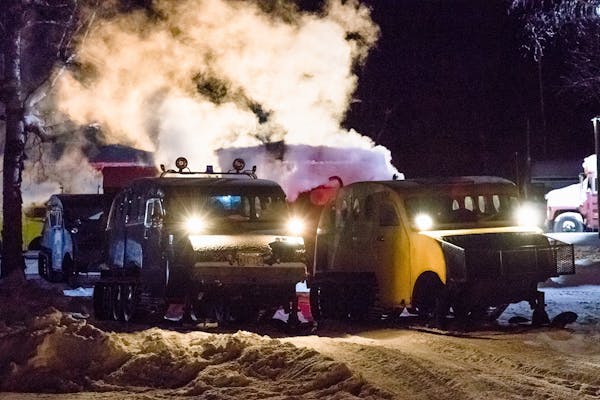The other day a few of us were talking and the subject turned to hunting and dogs and memories of the latter. Some dogs retrieve ducks, others point or flush pheasants, still others tree coons. No matter. The hunter who travels with a four-legged friend in his or her truck usually comes home with something for the table and in any event is happier for the experience, everyone's tail wagging.
But, as my father once said, when you acquire a dog you set yourself up for heartache sooner or later. In a fairer world dogs would live exactly as long as their human partners, thus avoiding the mayhem that ensues when one or the other departs this vale of tears prematurely. A cocker spaniel my family owned when I was still too young for school was killed by a speeding car while I watched, a memory time won't erase.
Anyway, dogs were discussed because one of those in the conversation, Bud Grant, had lost his dog, Boom, a black Labrador, last fall. The dog was in his 10th year, which nowadays is not altogether old, and he and Bud were in Manitoba, hunting alone, the two of them, for ducks. Those who have trekked north in fall for waterfowl can see now the low gray skies, the northwest wind bending tall grass and the flights of waterfowl banking intermittently within shotgun range, eyes of the hunter and his dog cast skyward.
"A small flock came over, and if I had ever done it before, I can't recall it,'' Bud was saying. "I shot three times and I dropped three ducks. One fell maybe 40 yards out, another 50 yards or so, and the last one 80 or 90 yards.''
Lap dogs can be great companions and some are even smart, or feign to be. But most are the canine equivalents of elixir peddlers out for a fast buck. Their life's work is to elicit favors from owners they size up as easy marks. By contrast the union of purpose joined by hunter and hunting dog acknowledges a commonality in each that is instinct-driven. Shooting three ducks in sequence is one thing. Doing it while one's dog sits alongside observing keenly the trio of birds somersaulting to the cold hard ground in sequence is entirely another. Dependent upon each other like relay runners, the hunter does his job, then hands the baton to the retriever.
That night Boom lay uncomfortably on the floor of Bud's Manitoba motel room. The animal's neck glands were swollen and as he reclined next to Bud's bed the dog shifted restlessly side to side. Surely he must have been sick earlier in the day. But his job and life's great pleasure was to retrieve what had been shot and, not incidentally, to please Bud, and he did both happily.
"The amazing part was how much work he did that day while he must have been sick,'' Bud said. "But he seemed fine, and he kept going.''
Boom's illness was diagnosed as terminal, and he was put down. The three ducks were the last birds he retrieved.
"I cried for a week,'' Bud said.
The twofold question that looms when a dog dies is whether to replace it and when. Some owners find the experience so devastating they opt not to set themselves up for more heartache.
Yet life's joys are fewer without a dog, and a dog's honesty, good cheer and loyalty are inspirations. As Mark Twain said, "If heaven went by merit, you would stay out and your dog would go in.''
Bud will be 90 in May, and acknowledges that if he replaces Boom, any new dog likely will outlive him. Still — call it an act of faith — he is wanting a new Labrador, older and trained, and has begun a search.
"This is the longest time since 1950 I haven't had a dog,'' he said. "It's a lonesome life. I'm accustomed to feeding a dog every night. Feeding and watering. Now you could say I'm lost. Dogs do that to you. Not just me. But anyone who's had a dog.
"Last fall, I hunted after I lost Boom, in North Dakota, Saskatchewan and Nebraska. But it wasn't the same. It just wasn't the same.''
Dennis Anderson • danderson @startribune.com

Anderson: Celebrate Earth Day by rekindling real connection to nature
Anderson: Anglers protesting tough new Mille Lacs rules are wrong

Anderson: Courts, not politicians, should rule on Red Lake, White Earth lands

Anderson: Multimillion windfall gets invasive carp deterrent moving
![A young whitetail deer searches for food as another blanket of snow coats the arrowhead. ] Minnesota -State of Wonders, Arrowhead in Winter BRIAN PETE](https://arc.stimg.co/startribunemedia/WK32UWWY6FKNWJUIYCJ6ZPT4AU.jpg?h=91&w=145&fit=crop&bg=999&crop=faces)

